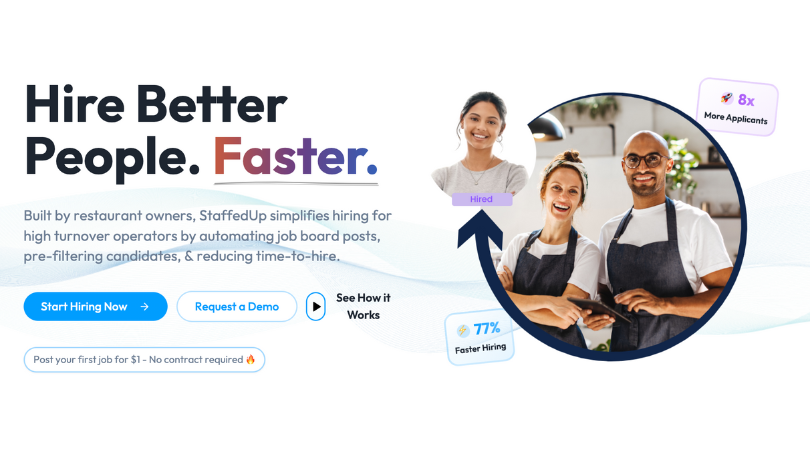Discover effective strategies to prevent burnout and improve employee well-being in the fast-paced restaurant industry.
Understanding the Impact of Burnout in the Restaurant Industry
The restaurant industry is notorious for its fast-paced and demanding nature, which can take a toll on employees’ mental and physical well-being. Burnout, a state of chronic physical and emotional exhaustion, is a common issue faced by many restaurant workers. It can lead to decreased productivity, increased absenteeism, and a higher turnover rate. Understanding the impact of burnout is crucial in order to implement effective strategies to prevent it.
Burnout can manifest in various ways, including feelings of exhaustion, cynicism, and a decreased sense of accomplishment. In the restaurant industry, long working hours, high-stress levels, and the constant pressure to meet customer demands contribute to burnout. Additionally, the physically demanding nature of the job, such as standing for long periods and repetitive tasks, can further exacerbate burnout.
The consequences of burnout are not limited to the individual employee; they also affect the overall performance and success of the restaurant. Burned-out employees are more likely to make mistakes, have lower job satisfaction, and provide subpar customer service. This can ultimately lead to a decline in customer loyalty and profitability. Therefore, it is essential for restaurant owners and managers to prioritize employee well-being and take proactive steps to prevent burnout.
Creating a Supportive Work Environment
One of the key strategies for preventing burnout in the restaurant industry is creating a supportive work environment. This involves fostering a culture of teamwork, respect, and open communication. Employees should feel valued and appreciated for their hard work and contributions.
Restaurant owners and managers can promote a supportive work environment by recognizing and rewarding employees’ achievements, providing opportunities for growth and development, and offering regular feedback and constructive criticism. It is also important to establish clear expectations and goals, so employees have a sense of purpose and direction in their work.
Additionally, promoting work-life balance is crucial in creating a supportive environment. Encouraging employees to take breaks, providing flexible scheduling options, and offering benefits such as paid time off can help prevent burnout and promote overall well-being.
Promoting Work-Life Balance
In the fast-paced restaurant industry, achieving work-life balance can be challenging. However, it is essential for preventing burnout and improving employee well-being. Restaurant owners and managers can promote work-life balance by implementing policies and practices that prioritize employees’ personal lives.
One effective strategy is to create a fair and consistent scheduling system that takes into account employees’ availability and preferences. This allows them to have a better work-life balance and reduces the likelihood of burnout. Additionally, providing opportunities for employees to take time off and offering flexible scheduling options can help them manage their personal commitments and responsibilities.
Moreover, encouraging employees to engage in self-care activities outside of work is important. This can include promoting healthy eating habits, regular exercise, and sufficient sleep. By supporting employees in maintaining a healthy work-life balance, restaurant owners and managers can help prevent burnout and improve overall employee well-being.
Implementing Stress Management Techniques
Stress is unavoidable in the restaurant industry, but implementing effective stress management techniques can help prevent burnout and improve employee well-being. Restaurant owners and managers can provide resources and support to help employees cope with stress.
One important technique is to encourage employees to practice self-care during their shifts. This can involve taking short breaks, practicing deep breathing exercises, and engaging in activities that help them relax and recharge. Providing a designated space for employees to take breaks and offering stress-relief activities, such as yoga or meditation classes, can also be beneficial.
Additionally, fostering a positive work environment and promoting teamwork can help reduce stress levels. Encouraging open communication, providing opportunities for employees to voice their concerns or suggestions, and addressing any conflicts or issues promptly can contribute to a less stressful work environment.
It is also important to train employees on stress management techniques and provide resources such as counseling services or employee assistance programs. By equipping employees with the necessary tools to manage stress, restaurant owners and managers can help prevent burnout and create a healthier work environment.
Encouraging Open Communication and Feedback
Open communication and feedback are crucial in preventing burnout and improving employee well-being in the restaurant industry. Employees should feel comfortable expressing their concerns, ideas, and suggestions without fear of retribution.
Restaurant owners and managers can encourage open communication by regularly checking in with employees, conducting one-on-one meetings, and creating opportunities for team discussions or brainstorming sessions. It is important to actively listen to employees’ feedback and take their opinions into consideration when making decisions that may impact their work.
Feedback is also essential in helping employees grow and improve. Providing constructive feedback and recognition for a job well done can boost employee morale and motivation. Additionally, offering opportunities for professional development and training can help employees feel valued and invested in their work.
By fostering a culture of open communication and feedback, restaurant owners and managers can create a supportive work environment that promotes employee well-being and prevents burnout.



